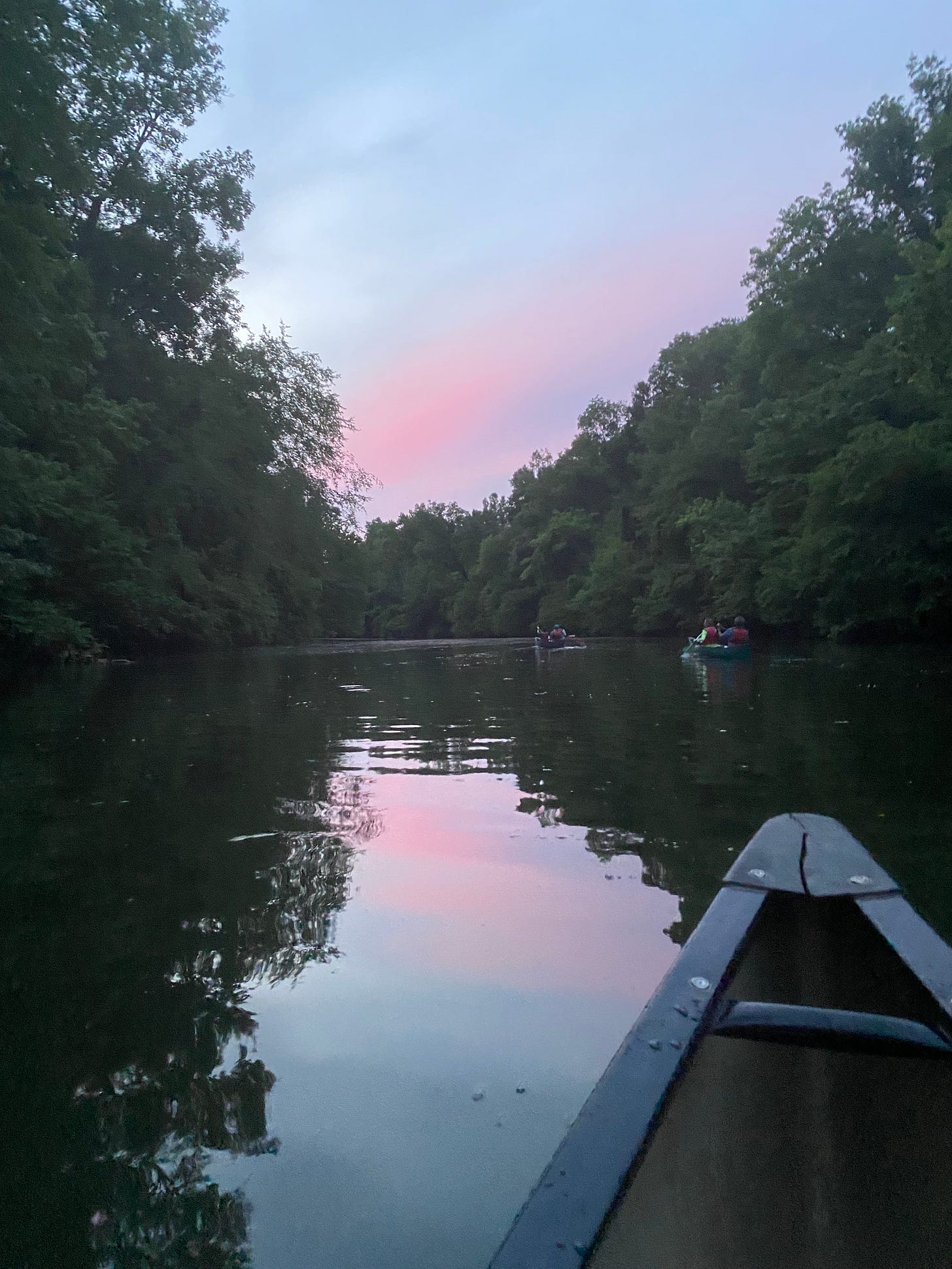In the corridor of my brain that is reserved for traditional girlie things, I have concocted dreams of delicately hand-painted china and punch bowls. Napkin rings and fruity cocktails. Glasses filled with the nugget ice everyone loves from the barbecue restaurant. I have Pinterest boards for homemade pizza parties, charcuterie boards, cookbook clubs, and holiday-themed gatherings. There are rules and there is a structure to the way these gatherings work. I love it for all its chaos.
It’s a two-part problem, one in that I like to take care of people. I am a people pleaser and gatherer, I love connecting old friends with new ones and talking about the book we read that just changed the way we think about the genre, TV shows we no longer trust, and work projects that we can’t wait to check off.
The second part of the problem is I come from a family of hosts. My grandmother, in particular, is the queen of hosting our family gatherings. Everything on the buffet table has to have a place, every item on the menu has to live in pristine matching casserole dishes, the utensil that scoops the okra has to be silver (not plastic), and if she is not pouring someone a drink or spying that someone needs a second serving—or if she’s not triple checking her cylinder of homemade ice cream in the deep freeze downstairs—then pigs must be flying. “We have everything we need now sit down!” might be the new Alverson/Stewart family motto.
I attended a different kind of dinner party in June. Nearly a year after my first canoe trip down the 280 corridor of the Cahaba River, I was climbing back in. My track record in a canoe, or the river in general, the past couple of months hadn’t been the best. I’d ended up under trees, stuck on rocks, seen many snakes, and the final blunder: a concussion.
I was fairly surprised that our canoe was one of the leaders of the pack. I had to beg one of our other board members, Sam, to let me ride in the front. I was better at being the power of the canoe than the steerer. I didn’t want to be the reason we fell behind. I didn’t want to end up next to something with teeth in the dark.
We had been paddling for about twenty minutes when a third party joined our voyage: a Great Blue Heron.
These large birds have extraordinary night vision. They hunt all night and into the early hours of the morning. Their appetites can and will consume any fish that it can fit in its mouth. The Cahaba River has more species of fish than any other North American river of its size. They also eat amphibians, reptiles, other small mammals, and even other kinds of birds. So our river friend has a rotating menu, a perfect palette as far as dinner parties are concerned.
Our boat was three behind the Cahaba River Society’s intern when we saw a gray-blue blur in the twilight. It was its shadow that I saw first, reflecting against the water. He quickly made his way further down the river—on the opposite bank, its great big wings hid beneath the branches of a nearby tree.
This went on for what felt like half an hour, we would trail closer, the sun kept going down, the moon began to filter its bright light through the clouds, and our host—the Great Blue Heron—seemed desperate for the quiet, to be rid of us, but also—to make sure we made it through its neighborhood safely.

I felt as if we were the guests at their dinner party. This bird was showing us from room to room as they moved from rock to branch to rock again. Their demeanor said: The fireflies tend to up there in the darkest branches. Watch them blink. That is their call and if you need to take a dip to cool down the Little Cahaba is over there, but don’t go too far in that direction or your face might meet the dangling branches of a tree. Listen to the frogs, they are singing their song, they are looking for their mate and a shallow pool to lay their slimy gooey eggs. Mingle a little with that boat over there. Dinner is at 10 p.m. Sharp. Don’t be late.
Eventually, the Great Blue Heron left us to our own devices. The moon became our only guide as we paddled back to the bridge at 280. Great Blue Herons fly with their neck folded, this distinguishes them from geese, storks, cranes, and other larger birds.
Our party did as we were told, we listened for frogs and other winged things before we learned about the pump station that filters water from the Cahaba to our tap water. We left the river smelling of bug spray, summer sweat, and river water. The next day our shoulders ached but there was a buzzing excitement in our group chat—an anxious pull to do it all again.
Also:
Follow Ed Pratt as he journeys from source to sea down the Thames River. He’s currently on day 13! (TikTok)
Time to clean up the crick! Mom’s Basement is hosting one of its famous river clean-ups on July 20 in Fultondale, AL. Grab a friend and sign up!
Local preservation releases dozens of hellbender salamanders back into the wild (Chattanooga Free Press)




